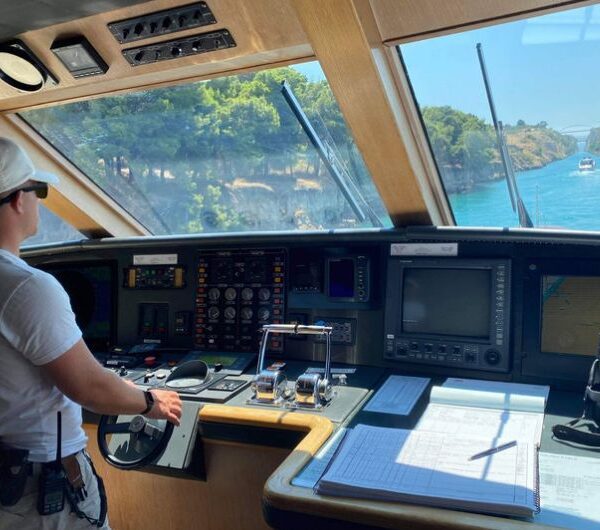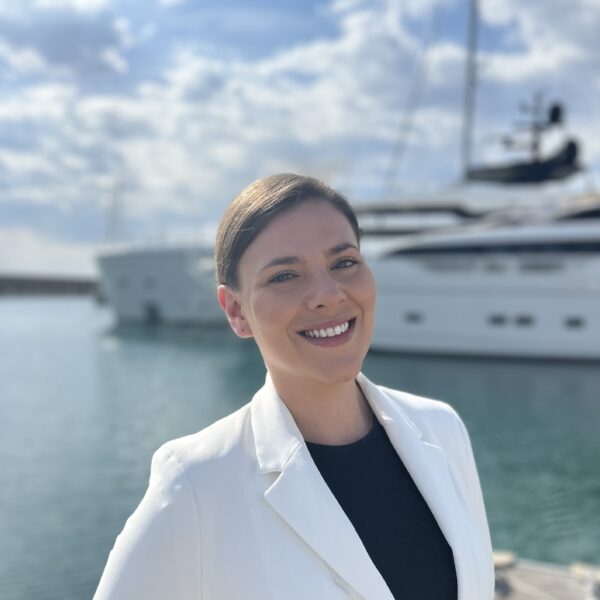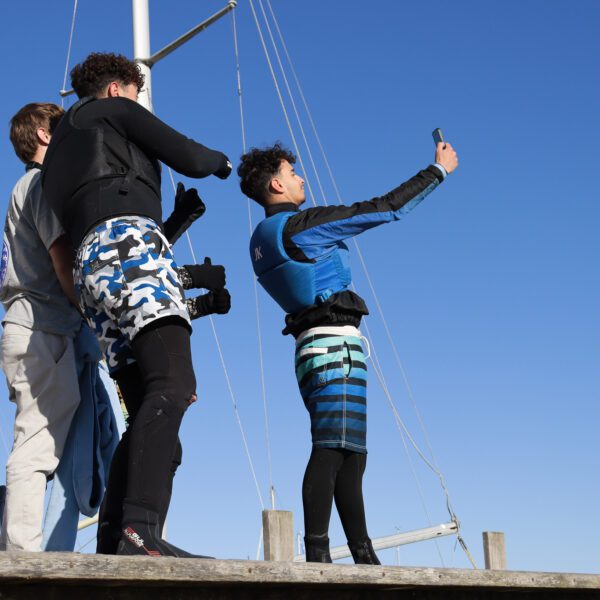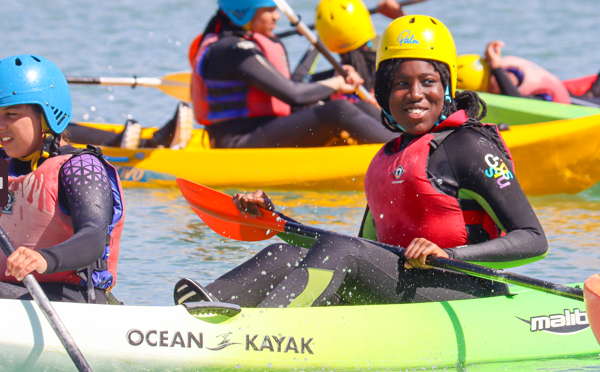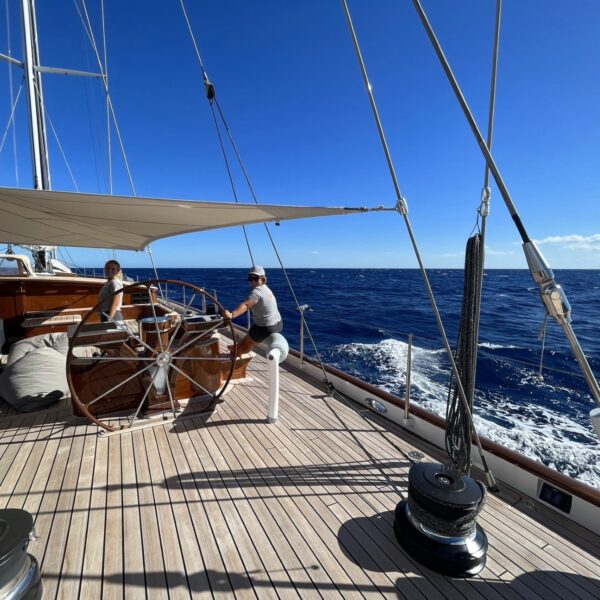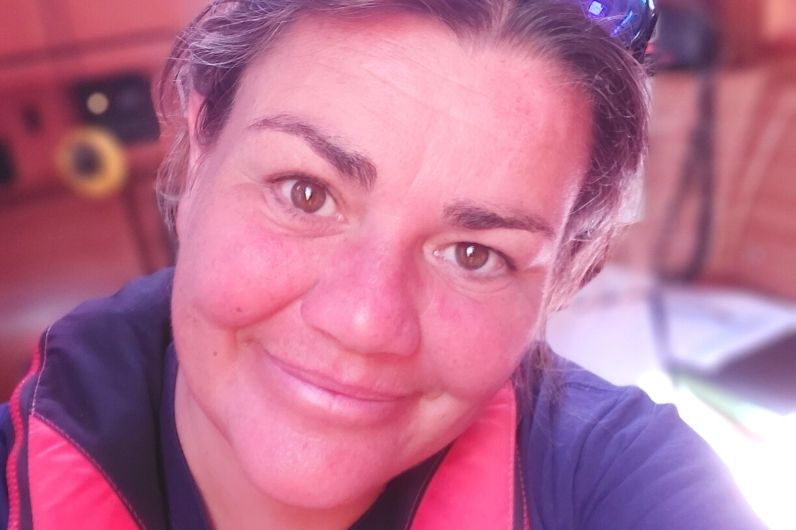
Why the tides are turning for women choosing a career on the water

As UKSA, the Isle of Wight based charity which provides world-leading maritime training announces a 150 percent increase in the number of women taking up its Superyacht Cadetship course, we welcome one of its freelance yachting instructors Emily Caruso to discuss why the tides are turning for women choosing a career on the water.
I remember when I began my career signing legal documents that referred without exception to the Skipper as ‘his’ or ‘him’ and the subsequent sense of frustration that came with it. I felt a dilemma of either choosing to speak out at such an early stage and potentially alienating myself amongst my predominantly male peers or instead electing to keep my head down and play the long game. Choosing my battles has played a significant part in the longevity of my career and whilst some may see this as a sign of weakness, I always perceived this as necessity.
The question of inclusivity is directly related to the culture that exists within the maritime sector and therefore is the responsibility of every single person involved at every level. Businesses, organisations and leaders need to consistently question and challenge working practices and be open to ongoing scrutiny and development for the greater good. The Maritime and Coastguard Agency has accredited 80 percent of accidents and incidents within the industry to ‘Human Error’ and so our focus for change should be around better people management, emotional intelligence and leadership skills, all of which promote a safer culture and in turn a more diverse representation.
UKSA’s Superyacht Cadetship is a fantastic alternative to university and uniquely, students earn while they learn so they can pay off their course fees whilst they’re working and training in the industry. UKSA also provides a shorter training path for entry level crew which is run over three weeks with options in deck or hospitality, these training options provide the skills and qualifications required to enter the industry as a junior deckhand or junior stewardess.
I can attest to a shift in culture across the industry which I believe to be a significant factor in attracting wider inclusivity. The increase in women taking part in the course demonstrates the changing tide when it comes to industry stereotypes and traditionally male-dominated departments onboard.
Gone are the days where ‘banter’ that is discriminative in any form is acceptable, goodness knows I’ve seen enough. We need to educate that one person’s concept of ‘funny’ can be incredibly destructive to another. We need to understand leadership and how to motivate and develop, rather than intimidate and control. We need to have a very honest look at ourselves and understand that we can do better.
You will note that I don’t separate myself from this notion of a need for change and moreover I don’t separate men and women. I have always believed that segregation does nothing for equality and instead I prefer to make female inclusion appear as ‘the norm’. I find it frustrating that the media often still use the prefix ‘female’ in a headline about a sailing story. I wonder about the backlash if that prefix were based on ethnicity rather than gender or if it were applied to, let’s say, a doctor.
Media representation on the whole will of course have an impact on recruitment and we have good coverage of the high achievers such as within the Ocean Race, the Vendee Globe and our amazing Olympians. Undoubtedly these sporting icons will inspire future generations and yet there are many unsung heroes that do so on a daily basis without accolade. The Sail Training community boasts numerous remarkable sailors that dedicate their careers (with little monetary reward) to changing the lives of young people that would never otherwise have the chance. Incredible women amongst them, running complicated and impressive vessels with often challenging and diverse young crew, demonstrating that anything and everything is possible.
The impact of a global pandemic should not be overlooked as a significant tipping point in terms of personal and communal reflection. Only when our very survival is under threat can we honestly and truthfully reflect on our values and priorities and perhaps find courage to explore a road previously less travelled. A life at sea represents the very essence of freedom, a luxury that many of us took for granted before the world began to lock down.
There is of course, the slightly more cynical view that the increase in interest in the Superyacht industry may come from the success of reality TV series Below Deck. Whilst I so much wish this isn’t the case, I suspect that this may well be a sign of our times and a contributing factor.
Whatever the reason, the result can only be positive and given the current momentum we are one step closer to creating that new ‘norm’. Imagine the potential talent that is out there, if only we can be open and honest enough to accept that we have a long way to go and that we all have our own part to play.
About Emily
Emily Caruso, 45, from Somerset, left her career in marketing 15 years ago to pursue a dream of being a freelance sailing professional. Passionate about promoting change in the maritime sector to promote inclusivity and a broader more diverse representation, Emily has worked with UKSA, Clipper Ventures, The Ellen MacArthur Cancer Trust, Lymington Yacht Charters and Rubicon 3 and been published on numerous occasions with Yachting World on a variety of sailing based topics. Emily’s qualifications include MCA Master 200 Unlimited, RYA Yachtmaster Ocean, RYA Yachtmaster Instructor and Co Facilitator for MCA HELM programme with Impact Crew.
Latest posts
